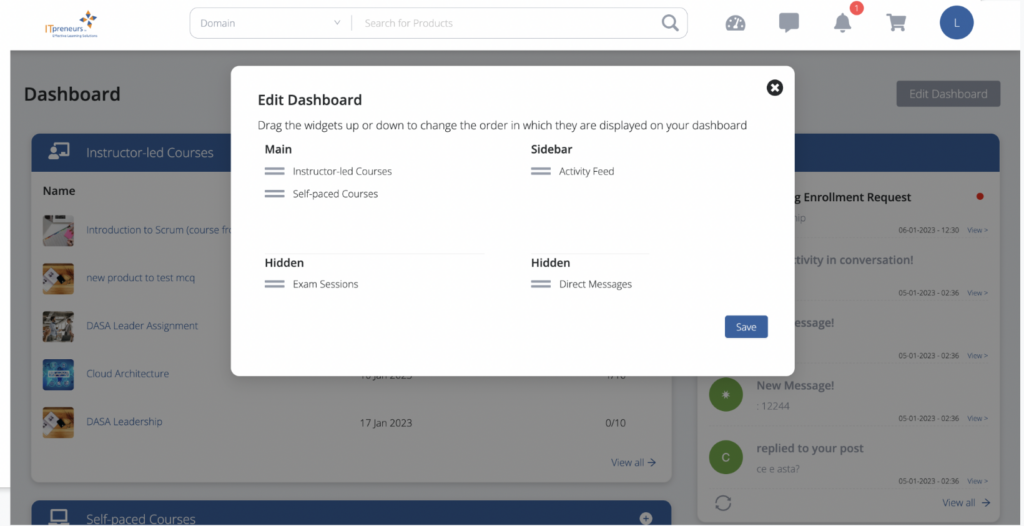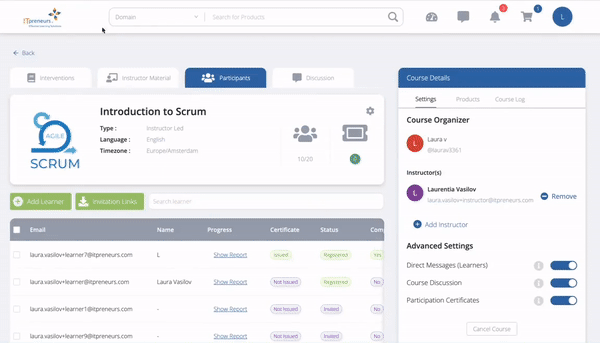There are a number of reasons leading professionals to consider learning from home. Be it to fill in the spare time during annual leave, to upskill during self-isolation from a pandemic, or simply to give one’s career a boost. Due to the somewhat recency of remote learning, it’s not always immediately clear what its value truly is. It has never been a better time to learn than now and doing so from home doesn’t have to be an inferior experience. As a matter of fact, it has some distinct advantages that shouldn’t be overlooked.
Further Flexibility and Control
Having complete control over when to dedicate time to learning is one of the most obvious advantages of learning from home. It can be very liberating to be the only one responsible for determining the pace. This way, struggling with a certain module doesn’t feel like such a menacing prospect. It’s only natural that some hectic days make it less prone to effective learning than others and learning from home allows learners to better capitalize on this.
Regrettably, going to physical classrooms can be a hassle. Knowing that there’s one additional commitment after working hours can be demoralizing to those struggling to find time to be at home. The process of learning shouldn’t feel like a chore and having a say on how to temporize it is crucial to make sure that doesn’t happen.
Comfort in Familiarity
This brings us to the importance of studying in a comfortable space. When background noise and clutter can be limited to a minimum, there’s natural light galore, and having a decent desk chair and desk is not a problem, it’s hard to beat the quality of the learning environment in one’s own home. Studying curled up on a couch, at the desk, and standing are all equally valid options when learning at home. Unfortunately, most physical classrooms do not provide options for learners to be in different spaces. It should be kept in mind, however, to not underestimate the importance of separating work from rest – associating different rooms to different tasks is advisable.
The extra degree of comfort that arises from working in one’s home may even contribute to creativity to blossom more freely. Many learners thrive best when listening to music, when having a cup of coffee, and surrounded by their favorite plants, after all. There is a common perception that efficiency and focus have to be sacrificed for the sake of well being but this doesn’t have to be the case. These are not mutually exclusive.
Savings
Sure, online learning costs less than face-to-face courses. But it’s not only here that savings come in. There are costs associated with traveling, meals, accommodation and the time spent stuck in the traffic that can be entirely avoided.
Easier to Keep All Files in One Location
This may seem like a pedantic point but there’s more to it than meets the eye. Limitations can be beneficial to self-organization. When learning from home, there’s no need to keep many notebooks and virtual stickies. There’s no need to transcribe notes from pages taken to the classroom to the notebook left at home. All key files and other items can be located in a single folder/drawer. It helps that learners have everything within reach and know exactly where stationery can be found which can be a real-time and stress-saver.
Furthermore, making use of the gigantic pool of materials accessible online is also much more natural when the learner is already using the computer, laptop, or tablet to undertake the classes. All it takes is for the instructor to share a URL, and the learner instantly accesses new materials to supplement his studying. Indeed, creating a folder for bookmarks in one’s browser of choice can go a long way in keeping everything in its right place. If in need of taking things one step further, learners can adopt task management apps such as Monday.com, Easynote, or Trello.
Structured Engagement With Peers
The camaraderie and mutual support that spontaneously develops in physical classrooms don’t have to be entirely lost when working from home. A case could be made in fact that as counterintuitively as it may seem, learning from home may actually lead to more interaction with peers.
It has become increasingly important for virtual classes to promote engagement between learners and experienced instructors are aware of this. That’s why there’s a tendency towards dedicating more time to the implementation of strategies conducive to the strengthening of the relations of the learners. Importantly, new (mostly non-verbal) communication skills are acquired in the process. Exchanging ideas is a way of both looking at modules in new ways and feel socially bound to peers. There’s no reason for this not to be done when learning from home.
Demonstration of Self-Discipline and Time Management Skills
To succeed at learning from home, a certain degree of self-discipline and time management skills is required. Accomplishing a certification or completing a training program from home can, therefore, signal to others the possession of these skills. Being able to bring things to fruition in different settings is an advantage after all, for any organization seeking flexible, easily-adaptable workers. This is particularly relevant at times when circumstances force companies, government, and other organizations to operate differently from usual.
Learning from home, whether by choice or necessity is an opportunity. The professionals who make the most of their advantages are the ones who are ultimately better suited to respond to change and evolve.



